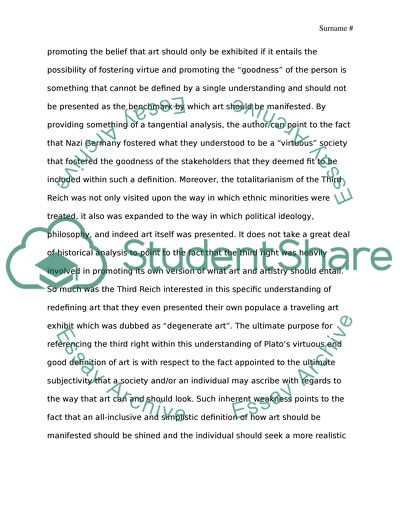Cite this document
(“Plato and a More Definitive Understanding of Art and Philosophy Essay”, n.d.)
Plato and a More Definitive Understanding of Art and Philosophy Essay. Retrieved from https://studentshare.org/philosophy/1487618-you-can-choose-one-of-the-outlines-that-im-gonna
Plato and a More Definitive Understanding of Art and Philosophy Essay. Retrieved from https://studentshare.org/philosophy/1487618-you-can-choose-one-of-the-outlines-that-im-gonna
(Plato and a More Definitive Understanding of Art and Philosophy Essay)
Plato and a More Definitive Understanding of Art and Philosophy Essay. https://studentshare.org/philosophy/1487618-you-can-choose-one-of-the-outlines-that-im-gonna.
Plato and a More Definitive Understanding of Art and Philosophy Essay. https://studentshare.org/philosophy/1487618-you-can-choose-one-of-the-outlines-that-im-gonna.
“Plato and a More Definitive Understanding of Art and Philosophy Essay”, n.d. https://studentshare.org/philosophy/1487618-you-can-choose-one-of-the-outlines-that-im-gonna.


